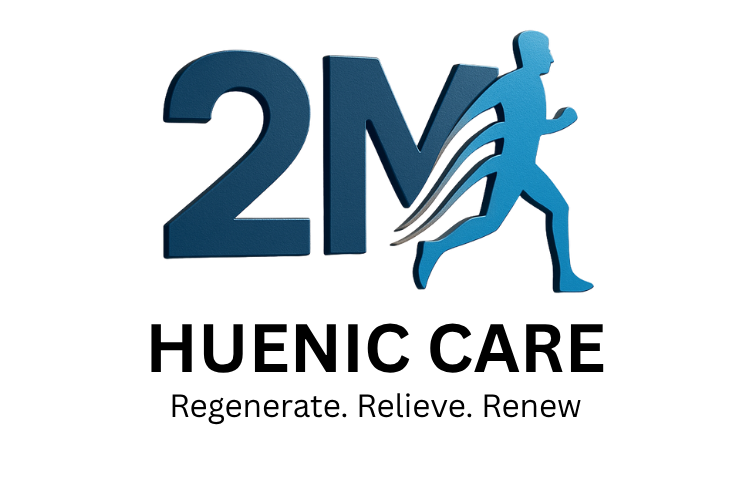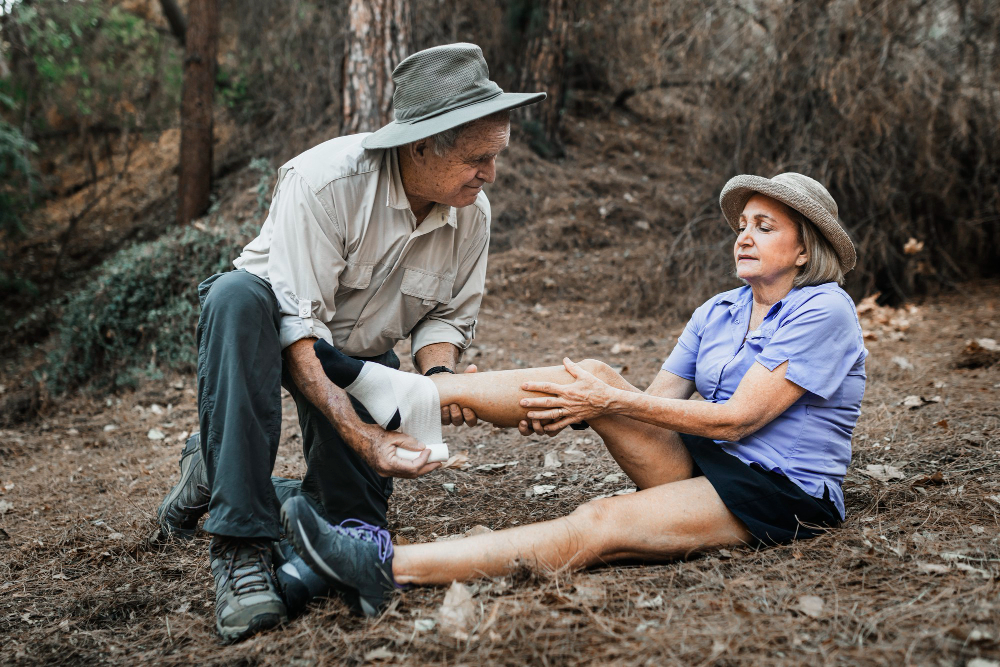Traumatic Brain Injuries hold great importance in the modern world due to their growing prevalence. These injuries can range from mild concussions to severe damage, affecting numerous lives every year. According to predictions, TBIs will become more significant than many diseases by 2030. Addressing TBIs is crucial for better future recovery outcomes of affected individuals.
Experiencing a TBI greatly affects one’s physical abilities and emotional well-being. Recovery is a challenging path that requires patience from both the individual and their caregivers. Each phase of recovery represents a step forward, contributing to significant life improvements over time.
In rebuilding life after a TBI, physiotherapy plays an essential role. It focuses on recovering lost physical skills and addresses wider cognitive and emotional issues. With effective therapies, physiotherapists support people on their journey to a more independent lifestyle.
Understanding the Complexities of Traumatic Brain Injuries
Falls, car accidents, and sports injuries often cause brain injuries. They cause sudden disruptions in how the brain works. Knowing these causes helps in prevention and care. Issues like brain bleeding or lack of oxygen make things worse.
TBI symptoms come in many forms, like physical and emotional changes. Physical signs might include headaches that don’t go away. Mentally, people might find it hard to remember things. Emotionally, feeling low or anxious can happen. Treating these areas together is key for full recovery. Especially in physiotherapy for TBI, this approach is crucial.
Recovering from a TBI can change someone’s daily life forever. After an injury, moving, talking, and maintaining relationships can be hard. Such changes need detailed therapy plans for adapting to everyday struggles. This is why traumatic brain injury rehabilitation should be all-encompassing.
The Essence of Physiotherapy in Brain Injury Recovery
Physiotherapy is all about helping folks move better. It focuses on improving movement and reducing pain through basic exercises. With traumatic brain injuries, these goals support regaining movement control effectively.
Rehab after a brain injury needs teamwork for the best results. Physiotherapists often partner with neurologists, psychologists, and others for a stronger recovery plan. This approach not only tackles symptoms but aids the body and mind together.
Each brain injury case is distinct, requiring specific physio treatments. Factors like age and existing conditions shape therapy methods. Personalizing the plan ensures sessions focus on key areas, improving results and speeding up recovery.
Customizing Physiotherapy to Restore Physical Function
Regaining physical prowess after a traumatic brain injury requires personalized exercises connected to neural pathways and muscles. TBI recovery activities designed to improve strength and coordination are crucial for this journey. These exercises target specific muscle groups, gradually helping patients regain control and movement.
Key physical therapy activities post-TBI focus on gait training and balance while walking. Edema management also reduces swelling, lessening pain and aiding healing. These therapies target each patient’s needs, resolving the most significant TBI-related physical challenges.
Physiotherapists must adjust activities to match patient progress and needs continually. This includes reassessment, refining techniques, and introducing additional therapies. Such flexibility ensures TBI treatment stays effective and helpful during recovery.
Maintaining Balance and Safety Through Targeted Training
Restoring balance and posture is crucial for reducing future injuries. We focus on exercises that improve awareness and muscle control. These skills are key to staying stable on various terrains every day.
We introduce exercises that strengthen core muscles and stabilize joints. This reduces the risk of falling in the future, proving physiotherapy for TBI is effective long term. By focusing on stability, patients build confidence while moving around safely.
Patients learn safety principles to apply in daily life activities. Each movement is done with care, lowering injury risks significantly. This way, they practice skills learned in therapy during their everyday routines.
Promoting Neuroplasticity for Enhanced Recovery
Neuroplasticity is how the brain can change and grow. It helps the brain adapt to new situations and stay flexible. Neuroplasticity plays a key part in helping recover from traumatic brain injuries (TBI). Understanding this concept shows how the brain’s resilience aids healing.
Therapists encourage new connections in the brain with specific, consistent movements. These movements help patients gradually regain lost skills after a TBI happens. They craft exercise plans just for each individual to speed up their recovery. These carefully planned activities make sure to address each patient’s unique rehabilitation needs.
Moving your body can help the brain improve its function too. Each motion is thoughtfully chosen to build new pathways in the brain. Patients progress through these steps until they see improvement over time. This approach highlights the significance of neuroplasticity in modern physiotherapy for TBI.
Physiotherapy focusing on movement gives beneficial results in TBI recoveries by utilizing the power of neuroplasticity effectively.
Alleviating Pain and Muscle Tension with Specialty Techniques
Alleviating muscle tension and pain is crucial for managing symptoms during TBI. Techniques like manual therapy, stretching, and neuromuscular stimulation are effective. They focus on sore areas, circulation, and mobility improvements. These methods work together to ease pain and help muscle health.
Beyond standard physiotherapy, using complementary treatments like chiropractic care can help recovery too. These therapies address not only the physical aspects but also the mental strain of TBI rehabilitation. It’s important for physiotherapy in TBI to offer a holistic approach.
Understanding physiotherapy for TBI involves knowing about both primary and secondary techniques. This includes knowing about how exercises help recovery timelines and what rehabilitation centers can offer. With fewer complex words: embrace each technique because they assist in managing TBI symptoms effectively.
Physiotherapy practicers can offer steps toward healing through well-planned measures ensuring patient care remains steady at rehabilitation centers.
The main goal is to enhance physiotherapy TBI patient care offered by professionals. With improved methods, patients can have a better chance of recovery and gain from personalized TBI physiotherapy treatment plans set by experts in rehabilitation centers.
Uplifting Emotional & Cognitive Health Through Physical Therapy
Join movements that not only benefit the body but help your mind. Regular exercise encourages the brain to become sharper and think better too. It’s fascinating how a simple workout can refresh memory and focus.
Try dual-task workouts for a challenging experience both for body and mind. Do balance activities along with fun games like solving puzzles. This method trains the brain to juggle tasks, enhancing mental strength. It’s rewarding to see your focus getting sharper.
Staying active naturally lifts mood by boosting good feelings through movement. This can be very useful in handling low feelings during TBI recovery. Completing regular exercises brings a sense of achievement, building positivity day by day.
The Holistic Approach: Collaborating with Specialists
Neurological physiotherapy for TBI is most effective when specialists collaborate together. A team, including neurologists and speech therapists, creates a detailed plan. Their combined insights ensure a more personalized treatment, covering every recovery aspect.
Inputs from different experts create precise and relevant TBI recovery exercises. The team adapts the physiotherapy to improve patient outcomes effectively. Each session reflects a shared understanding among the team for comprehensive care.
TBI recovery timelines differ, requiring unique schedules for every patient. Therapists set achievable milestones that offer clear goals and progress tracking. This customized approach meets each patient’s particular needs and injury specifics, ensuring personalized and realistic targets.
Fostering Support: Guidance for Families & Early Rehabilitation
Family members play a critical role in traumatic brain injury rehabilitation. Their support can lift patients’ spirits during the tough times. By joining therapy sessions, loved ones provide both emotional strength and motivation. This helps create a nurturing rehab environment that benefits everyone involved.
Patience is necessary because TBI recovery timelines are often extended. Families should get ready for this long journey ahead. Blending understanding and commitment to the process is crucial for success. Educating relatives about physiotherapy TBI patient care highlights the need for dedication and perseverance.
For effective healing, physical therapy exercises post-TBI need home support. Creating spaces at home that reflect peace and positivity is really helpful. Clear out areas for exercise and ensure a calm atmosphere. Safety adjustments in daily routines can make life easier and aid smooth rehabilitation.
Rebuilding Strength, Restoring Independence — Together.
At Huenic Care, we believe every step in TBI recovery counts.
Our expert physiotherapists craft personalized rehabilitation plans to help you or your loved one regain mobility, balance, and confidence — at your pace.
Specialized TBI rehab | Compassionate care | Home-based therapy options
Book a physiotherapy consultation today with our neuro-rehab team.
Let’s begin your healing journey — together.





